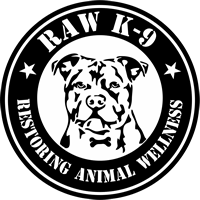Ingredients And Benefits
| INGREDIENT | NUTRIENTS | BENEFITS |
|---|---|---|
| Variety of meats: beef, chicken, turkey, kangaroo, venison Local meat – not imported/irradiated | Beef:
|
Variety of meats provides a balance of high-quality protein sources, which ensures all the essential amino acids are provided - and keeps your dog interested and coming back for more.
Beef is an excellent source of protein, containing all the essential amino acids required by dogs. Chicken is an excellent source of protein, a rich source of most B vitamins and contains useful amounts of phosphorous and potassium. Turkey is a lean, highly digestible meat that is a rich source of protein for building muscle, and vitamins and minerals, which help regulate blood pressure, boost the immune system and facilitate the processes of healing. It is lower in saturated fat and cholesterol than chicken or beef. Turkey can be an alternative option for dogs with food sensitivities or food allergies to beef or chicken. Kangaroo is naturally free range and organic, and is nutritionally superior to farmed meats. It is ideal for treating pets with food allergies. Venison is tasty and helps dogs maintain healthy energy levels. It can be a good option for dogs that may have food sensitivities or allergies to other protein sources such as beef or chicken. It may help reduce allergens and food-related skin irritations. |
| Beef | ||
|---|---|---|
| Beef chunks | Raw muscle meats provide high quality and easily digested protein and a wide range of micronutrients. Essential fats, minerals and vitamins that are diminished through the cooking process are found in raw meat proteins | Dogs do not naturally eat minced meat. Chewing, biting and tearing are good for dogs and part of their natural behaviour. |
| Beef heart, kidney and liver |
|
Cartilage is essential for joint growth; also recognised as an anti-degeneration and anti-aging food.
Our juicy, meaty bones help scrape away plaque build-up on your pet’s teeth. The raw meat on the bones has beneficial enzymes and bacteria help prevent tartar building up. Chewing and gnawing appropriate-sized bones helps build your dog’s neck muscles – and will keep them happily occupied too. |
| Raw meaty bones
From young animals to prevent damage to teeth. (Older animals have harder bones) |
|
Cartilage is essential for joint growth; also recognised as an anti-degeneration and anti-aging food.
Our juicy, meaty bones help scrape away plaque build-up on your pet’s teeth. The raw meat on the bones has beneficial enzymes and bacteria help prevent tartar building up. Chewing and gnawing appropriate-sized bones helps build your dog’s neck muscles – and will keep them happily occupied too. |
| Beef green tripe
Green tripe is the term used for un-processed tripe and is highly nutritious as a meat source. |
|
Green tripe is a powerhouse of digestive enzymes and probiotics, which means that the body does not have to use as much energy when breaking down the raw material.
Digestive enzymes purify and cleanse the blood, removing toxins, parasites and fungus. They also improve metabolism, hormonal function and boost the immune system. Lactobacillus acidophilus helps your pet fight disease by increasing the ‘good’ bacteria in your pet’s stomach, assisting to prevent the takeover by ‘bad’ bacteria like e-coli, salmonella, campylobacter and listeria. Tripe is also a ‘white’ meat and is often used for dogs with sensitive digestive systems, or food allergies. It can also be used to help treat skin irritations in dogs. Manganese is involved in many systems, such as fat and carbohydrate metabolism and bone and cartilage development. |
| Chicken | ||
|---|---|---|
Chicken giblets |
|
Giblets are also high in glucosamine, which is beneficial to your pet’s cartilage and joints. |
Chicken bones: wings, neck, feet; breast |
|
Good quality protein found in the skin, flesh, bone and marrow |
Chicken organ meats |
|
Chicken hearts are a nutrient-rich striated muscle and are an excellent source of taurine, an important building block of protein. Chicken liver is a good source of lean protein, vitamin A and iron. |
Turkey |
||
|---|---|---|
Turkey organ meats |
|
Turkey hearts are muscle meat so are a good source of digestible protein. |
Sardines |
|
A great way to add omega-3s and a way to provide a number of important fatty acids (including DHA and EPA); low mercury loads. Excellent protein source. |
Pumpkin / carrot / kale / apple |
|
Polyphenols have antioxidant properties, which have been shown to reduce the risk of heart disease (Brown, 2010, p. 23) Veg and fruit provide hundreds of different types of antioxidants and other beneficial plant compounds. (Brown, 2010, p. 34) Raw (as opposed to cooked) fruits and vegetables contain an abundance of beneficial antioxidants, phytonutrients and enzymes. |
